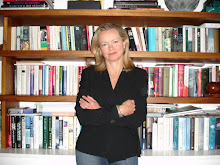Not necessarily here. The same wise blogger advised me that blogs should retain distinct voices, focussed on a specific range of subjects. This very blog is usually restricted in scope (ie: research for my tome-in-progress on photo-journalism). One friend described it well: “Very nice, but very niche”.

Fred Jackson ISO, QFSM, CPM 12/06/23-18/12/08 - Requiescat -
I do try to keep to photography/news/arts themes & not hijack the blog for subjective rants & meanderings. Neither am I particularly qualified to analyse citizen journalism, UGC, social media & all other elements of the 21st century worldwide intra-web. I leave that to the professionals, many of whom you will find on my blogroll.
Yet for several weeks now, I have wanted to write about “online communities”. I heard – well, overheard – the statement in this post title over lunch. Perhaps I shouldn’t have been eavesdropping? But the tables were so close! We were in an Italian trattoria, much frequented by the editorial & management teams of a global media organisation.
On the rare occasions that my picture byline now appears, it is so out-of-date, that I am utterly unrecognisable & the two Fleet Street Grandes Dames who sat next to us, although I'd met them both before, did not acknowledge myself or my table mate, beyond a friendly smile when the over-sized pepper mill arrived.
One was a writer, of the superior Polly Filla variety, musing on an apposite subject for her next piece. The mental health of readers who left online comments in response to her column was suggested by her interlocutor, a senior editor, with wide management experience. She delivered the assertion above with conviction & audible venom. She went on to complain about the hundreds & thousands of pounds “wasted” by the newspaper on the ever so dull & time-consuming chore of moderating said comments.
As I choked on my tiramisu, I was reminded of two former colleagues, both political pundits but from diametrically opposed corners of the ideological spectrum, both of whom have struggled with the uncomfortable accountability which the new mania for reader interaction has foisted upon them both. An analysis of this feedback frenzy was provided in the Times recently by the perceptive Sathnam Sangera. Read more here.
Unsurprisingly, my friends reacted distinctly to this new relationship with their readers. The first was both sanguine & fully cognisant that the volume of comments, temperate or otherwise, was key to keeping him safe in his lofty position, both on the Op-Ed pages & the editorial board. The other was bug-eyed & apoplectic in his fear & loathing of the “green ink brigade”. What might surprise you is which reaction came from the Leftie and which from the old reactionary....
I have no pat answers to the vexed question of online communities. It is early days and the communities in question are still in their infancy; we may not yet have the perspective to judge their merits or otherwise. In a recent blog post, my friend (not IRL, but one of my many talented Twitter friends – go figure…) Benjamin Dyer points out that online communities are fundamentally flawed, because they are driven by emotional human beings. Read his thought-provoking post about building an online community here.
When another Twitter acquaintance, Neil Perkin, was asked to present on how online communities work, he actually crowdsourced opinion which he was then able to feature in his talk. Read more about Neil’s intriguing project here.
From a purely personal perspective – that is: of someone working freelance from home, alone but for the much-appreciated company but non-existent conversation of three psycho spaniels – I feel extremely grateful for the often unexpected but always stimulating interaction with my own online communities – such as they are.
I have finally been able to abandon an uncomfortable fortnightly evening of warm Pinot Grigio and bitching, masquerading as a book club and I am now able, via Shelfari.com, to discuss my own favourite books with intelligent readers around the world, who share not merely my postcode but my literary predilections
When I switch on my computer every morning, I remain enchanted (just about) to be able, via Facebook, to IM my teenage goddaughter who has just got back from school in Hong Kong or to see the very latest photographs my talented stepson Daniel Griffin has uploaded to Flickr.com from his current trip to India & Nepal.
Via Twitter, I am in touch with scores of other freelance translators around the world - all of whom are never less than generous with their tips, suggestions and even the occasional heads-up on a potential work opportunity.
Over the last 30 months, as I've struggled to find my way through the terrifying parallel universe that is the planet of geriatric care, I have been more grateful than ever for the opportunity to moan, whinge and even scream in cyber-space. And guess what? Amazingly – you usually get heard.
Late one November night in 2006, possibly, after a glass of wine or two, I started to blog – more or less anonymously & very much elsewhere. I wrote about my much loved Father’s sudden & utterly unexpected descent into a rare, and not yet fully understood, form of dementia, about our frustrations at the tyrannies of the “pathways” & “protocols” of the health & social care systems, about our shock & distress when we discovered that so many of those with a duty of care to my father were actually exploiting and abusing his frailty, his confusion, his generosity and his trust.
Within minutes of pressing post, I had received a score of responses: from social care professionals, from more than one medic, from daughters who had been through a similar experience. Yet the majority came from casual readers, those who had taken a few minutes to read my posts and who felt moved enough to respond. If that is not a "community" - I'm not quite sure what is.




